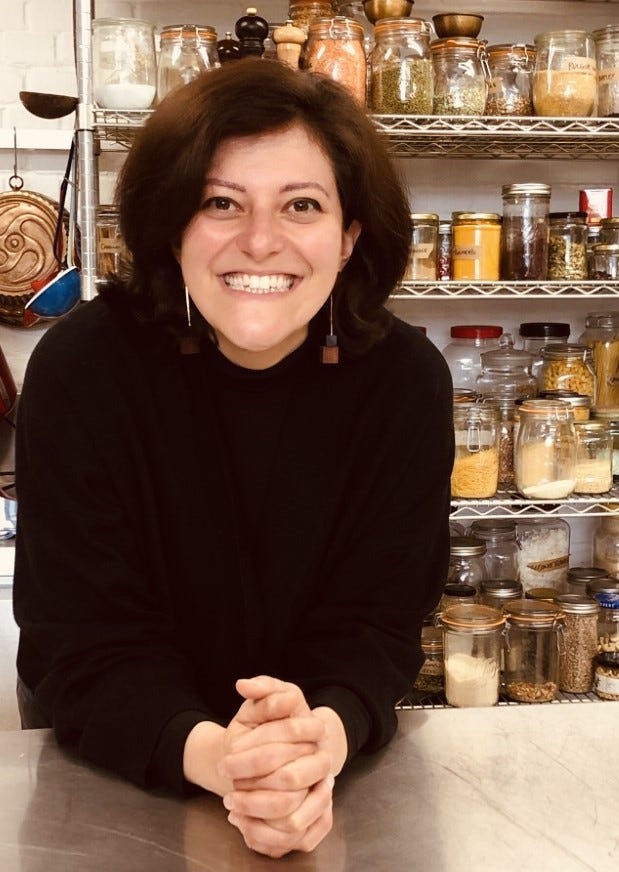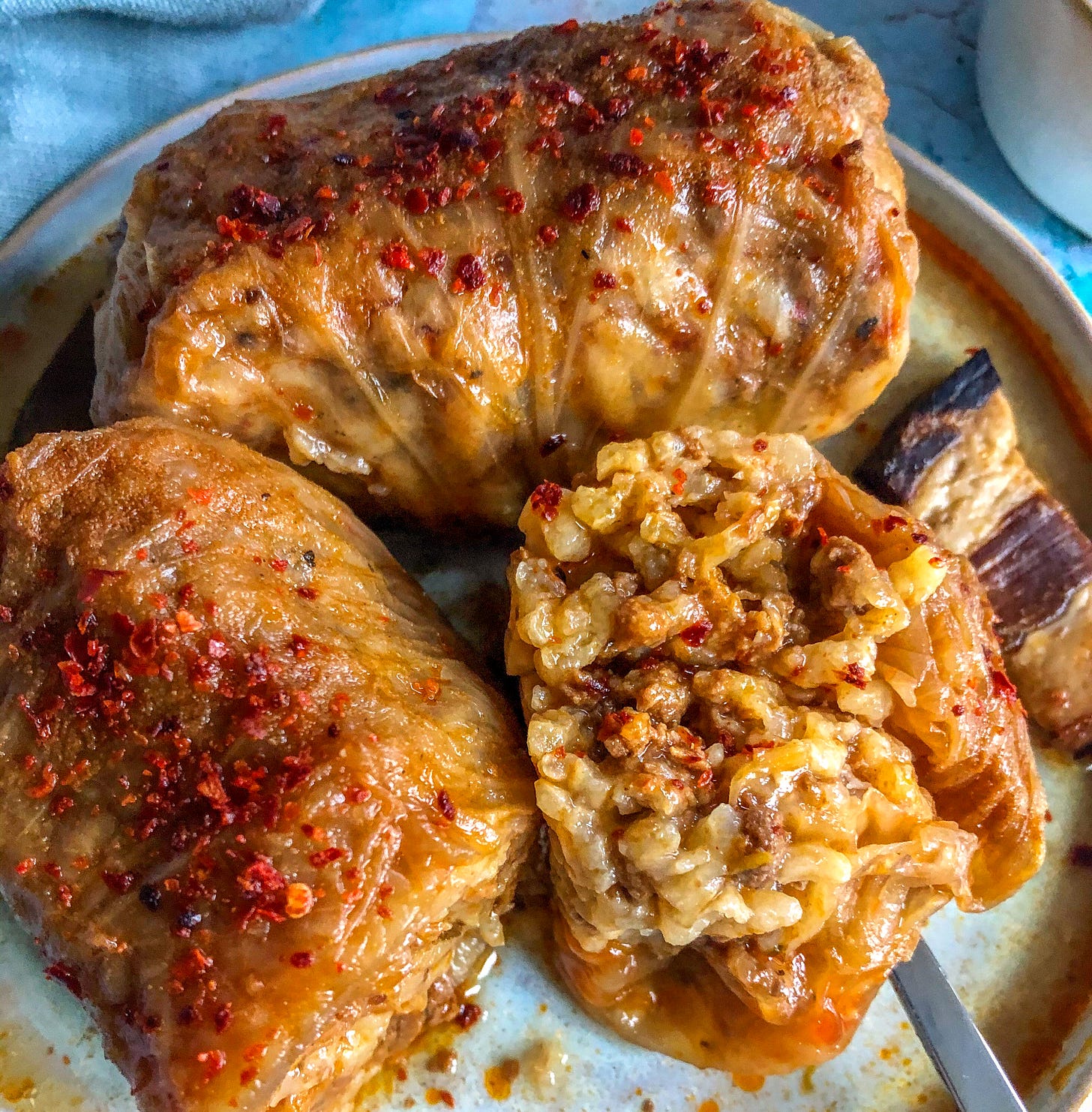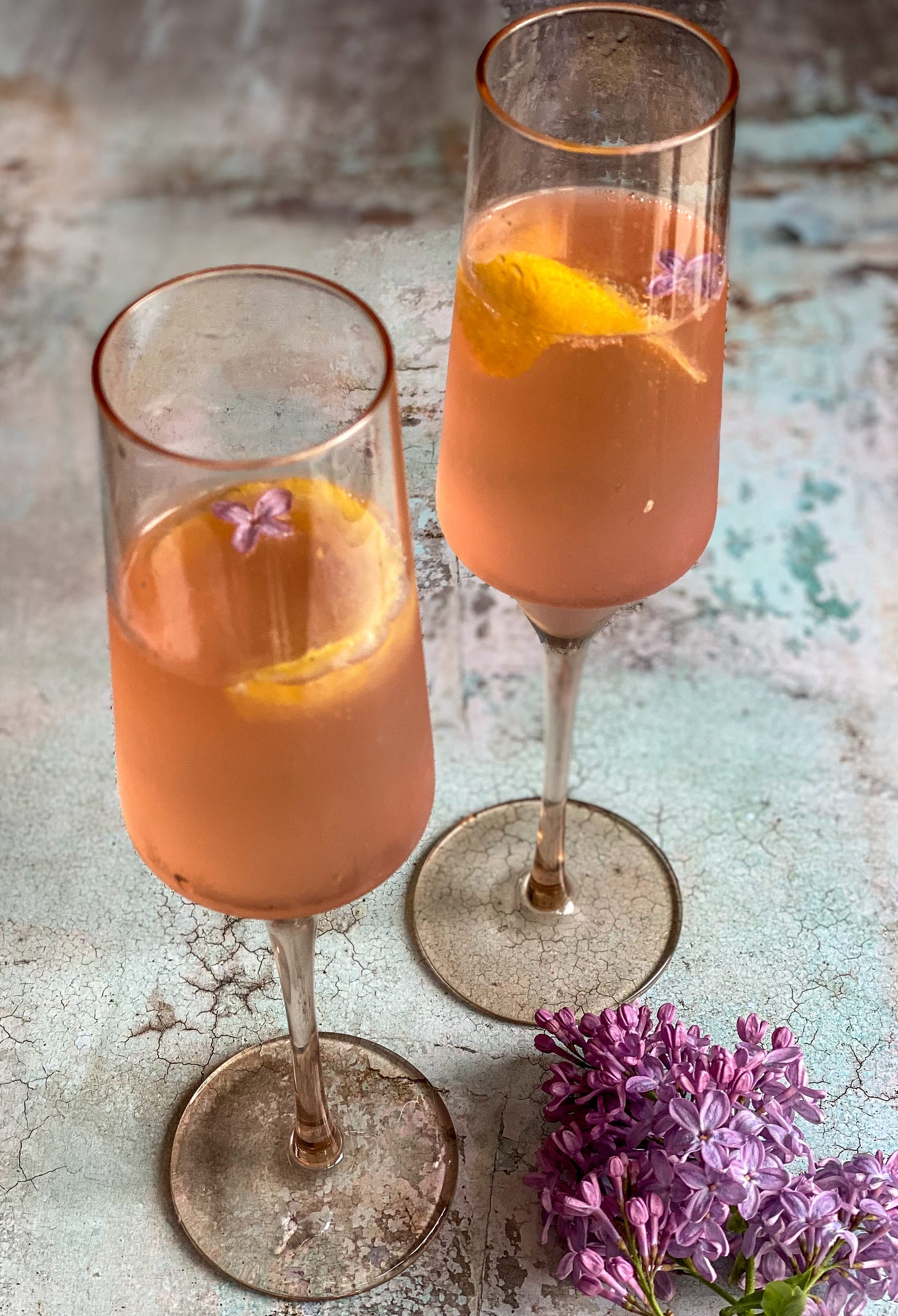S4E13. Gastronationalism tastes like nothing
Food can become a vehicle of supremacy, when cuisines and dishes are claimed by the prevailing rhetoric of nation-states. As explained by the founder of 'The Balkan Kitchen' project, Irina Janakievska
Dear reader,
welcome back to BarBalkans, the newsletter with blurred boundaries.
Traditions can be almost sacred in many parts of the world, but especially in Europe. The link between identity and the body of unwritten rules of customs and even food has the power to transcend rationality and becoming ground for narrow-mindedness, division and conflict.
What starts as cultural enrichment - a dialogue between different customs or a recognition of a common past - can easily become a dull and contradictory identity rhetoric. A nationalist rhetoric.
It applies to all shades of the traditions in a country, a region, a community. And food plays a major role. When a popular cuisine meets the myth of the nation-state (on different levels), a cultural dogma is born: gastronationalism.
You can find it everywhere, from Italy to France, from Greece to Turkey. Also in the Balkans, with peculiar features and forms.
BarBalkans will analyze all these concepts with the support of a professional who knows the Balkan cuisine in depth. Irina Janakievska, founder of The Balkan Kitchen project, will guide us through the dangerous mindset of gastronationalism and will help us to understand how to begin to restore dignity to culinary traditions.
Looking forward to the publication of her cookbook The Balkan Kitchen in summer 2024. «It is a cookbook, but I think of it as a love letter to the Balkans, its people and its cuisine told through recipes and stories», Janakievska reveals.
What is (culinary) nationalism
Almost everywhere in the world food is something that can at the same time powerfully unite and divide people. «This is my absolute area of interest», confirms Janakievska, introducing the topic of gastronationalism (also known as culinary nationalism).
Janakievska moved to the UK in 2001, when North Macedonia saw an escalation of violence internally that was threatening to bring to a full-blown civil war. «We were still in the midst of self-determination and transition politics. Although it had been 10 years since the break-up of Yugoslavia and the start of the wars of succession, it felt like we still had no idea what kind of identity we were transitioning to. In many ways we are still transitioning, I believe».
Coming from a region that has often been cast as ‘the bloodthirsty Balkans’ and ‘the powder keg of Europe’, and with her interest in food as «an all-pervasive aspect of Balkan culture», Janakievska decided to investigate the reason why cuisine has started to become - especially in the past 30 years - «one of the key platforms for expression of this self-determination and claiming a new national identity» in the Balkans.
In other words, what does nationalism have to do with food? «Well, everything», she found out.
«Food became a manifestation of historic rivalries between nation-states, an extension of an old school imperative to dominate and to reinforce this myth». While nationalism can be the means to the emancipation of nations - either from empire or from a socialist federalist structure - it also has an inherently supra-national goal: the reunification of all territories or nations that are outside the current borders of a (real or imagined) nation-state.
The nation-state is the myth of unity based on ethnic, linguistic, cultural, geographical, culinary factors, and on «the elimination of ‘the other’ through whatever means necessary», the founder of The Balkan Kitchen project warns: «Through the acquisition of territory, but also through the acquisition of food». This is how the whole idea of the nation-state «becomes a construct, a nationalist narrative».
In culinary terms, all this manifest as «designating a ‘national cuisine’ or a ‘national dish’». For example, where nationalist claims are thwarted - where the national State’s current boundaries do not match the full extent of the myth of the nation – «you stake a claim over a cuisine or a dish».
If we say that “this dish is our national dish, therefore it is not yours”, «we automatically precludes anybody else from staking a claim on it, or sharing ‘the ownership’». However, it is not possible to exclude the relation of other nations to a specific cuisine or dish, because «it would undermine the interconnectedness of food in history».
As Janakievska explains, moussakà is a good example. «It is made a particular way in Greece and it was perfected by a Greek chef in Istanbul, but this does not mean moussakà is not prepared or consumed elsewhere in the Balkans». On the contrary, «it transcends the political boundaries that we find ourselves in».
Read also: S4E12. The Balkans are disappearing
A necessary artifice
Considering the complexity of the controversial word ‘Balkans’, the choice of name is interesting - Balkan Kitchen - for a project whose aim is to fight against gastronationalism in the Balkan region (and beyond).
«I use the word ‘Balkans’ because the word itself is heavily loaded», Janakievska points out. The ‘Balkans’ has become a word with very negative connotations with the dissolution of Yugoslavia and the ethnic wars in the Nineties: «Yugoslavia became synonymous with the Balkans, and the Balkans became synonymous with bloodshed, violence, internecine conflict, fragmentation». As a result, the region as a whole has been stigmatized once again - «much like at the start of the 20th century» - as ‘the powder keg of Europe’.
This is why, «I wanted to reclaim this word», the founder of the culinary and cultural project states, specifying that «in my case I predominantly cover the cuisine spanning the territory of the former Yugoslavia. Of course, it does not mean the former Yugoslavia is the full extent of the Balkans».
Since «we were the cultural ‘other’ on the doorstep of Europe», Janakievska felt the urgency to show that ‘Balkans’ is more than a negative stereotype: «I am ‘the other’, I am writing from within my ‘otherness’ and I want to turn this word into something positive».
Read also: S4E4. Yugeurope
This is how in The Balkan Kitchen, «with a greatest love, respect and curiosity, I write about Balkan cuisine». The founder of this project explains that her aim is to «discover and describe the origins and journey of dishes», primarily in the region that correspond to former Yugoslavia. But also provide the necessary descriptive overspill across the rest of the Balkans and further afield, in order to show where there is «a meaningful overlap and impact» in cuisines.
Janakievska’s interest is focused on many aspects of a dish: «I look at the historical layers of identity in the region, the associations with modern myths of nation-state, the current political boundaries, its significance to various cultural, ethnic, linguistic or religious groups».
What results is the fact that «Balkan cuisine is a complete construct, it does not exist». But at the same time, «it is a necessary construct, because its implicit regionalism allows me to explore and celebrate both the culinary commonality across the region and the diversity».
The Balkan Kitchen tries to discover, understand and document the cultural history and intricacies of identities and how they overlap with the region’s cuisine, without falling into the trap of perpetuating nationalist delineation.
And even if there are dishes that everybody knows and loves - ajvar, ćevapi, burek, sarma - it does not mean that they represent the entirety of the culinary offering of the Balkans: «If we focus only on those dishes, we risk losing the beautiful individual specialties across the region».
Read also: S3E9. The legend of fraternal Spomeniks
Recreating flavors
«I would like people to understand how food has travelled both to, from and across the Balkans and acquired its layers, flavours, textures, and how it has adapted using unique ingredients, cooking techniques and tools». This is the message of The Balkan Kitchen project.
Preparing these dishes, we cannot forget that regional cuisines «carry the ever-present historical threads» and that we are always connected. «We should not limit ourselves to delineate the cuisine solely along national lines», Janakievska continues. Instead, we should focus on «preserving the rich culinary tapestry by celebrating both commonalities as well as the diversity».
Unfortunately, unpicking the historical threads that food carries with it is not always easy. For example, in the Balkans «some of these threads are lost in history and memory, or have become nearly invisible», their origin is undocumented or changed by the prevailing political, religious or national narrative. But echoes remain and - despite years of research and travels across the region - «this journey has only just begun», Janakievska tells us with a smile.
Read also: S2E34. Healing ajvar
What started as «an homage to my grandmother and the incredible women in my family», has become «a mission of documenting the cuisine of a region I love». A cuisine that is fast disappearing with the passing of older generations and the exodus of each successive generation, but also «modified, appropriated or altered» for political or nationalist purposes.
Moreover, this is mission of «helping others like me, members of the Balkan diaspora» all over the world, «to recreate the flavors of their memories». And, in this way, inspiring people to have conversations with older generations in their families «to document and preserve family recipes from specific areas of the Balkans».
All considered, The Balkan Kitchen is a cure to gastronationalism. «I would love people to fall in love with the Balkans, through food, as much as I am», the founder of the project confesses.
A love based on the understanding of how this cuisine «carries the weight of the often difficult and painful - but at the same time culturally rich and unique - history of the Balkans».
And how people «repeatedly uprooted from the Balkans at various points throughout history» - because of occupation, wars or other social, political or economic upheaval - «carry the cuisine in our souls wherever in the world we have chosen to put down new roots», Janakievska explains BarBalkans.
Read also: S2E17. The Balkans in Naples
Pit stop. Sittin’ at the BarBalkans
We have reached the end of this piece of road.
For such an expert of Balkan cuisine, there are so many recommendations on what to drink today at our bar, the BarBalkans. We can start with «dunjevača, the quince rakija as an aperitif» and finish with «Teranino, a red wine liqueur made from indigenous Istrian red grapes Teran, as a nightcap».
What Janakievska really recommends us is «Lilac French 75, a favorite spring cocktail in The Balkan Kitchen». As a preview of the upcoming cookbook, she makes us a gift of sharing the recipe (also for the cocktails main ingredient, the lilac syrup).
Here is the recipe for Lilac French 75:
25 ml floral gin
5 ml lemon juice and strip of lemon peel
20 ml lilac syrup
100 ml champagne (or more to taste)
Place the gin, lemon juice, lilac syrup and a handful of ice cubes in a cocktail shaker. Shake vigorously for a few seconds then fine-strain into a champagne flute. Top up with the champagne, and garnish with the lemon twist and lilac flowers.
Here is the recipe for the lilac syrup:
20 g lilac (l. syringa vulgaris) flowers (4-6 clusters of flowers)
3-4 blackcurrants or blueberries (fresh or frozen)
200 g caster sugar
200 g water
Pick lilac clusters which are fully in bloom but not yet browned or discoloured and, ideally, first thing in the morning when the nectar is most potent. Rinse and pat them dry. Gently pick off the small flowers, taking care to pull out the base of each little flower, but discarding any green or woody parts.
To make the syrup, place the lilac flowers, berries and sugar in a small bowl and pour over the freshly boiled water. Stir gently to dissolve the sugar, then cover and allow to infuse for around two hours (don’t be tempted to leave it longer, there is a tipping point beyond which the syrup will turn bitter). Then strain through a fine sieve into a sterilised airtight bottle. Keeps well in the refrigerator up to four weeks.
Let’s continue BarBalkans journey. We will meet again in two weeks, for the 14th stop of this season.
A big hug and have a good journey!
If you have a proposal for a Balkan-themed article, interview or report, please send it to redazione@barbalcani.eu. External original contributions will be published in the Open Bar section.
The support of readers who every day gives strength to this project - reading and sharing our articles - is also essential to keep BarBalkans newsletter free for everyone.
Behind every original product comes an investment of time, energy and dedication. With your support BarBalkans will be able to elaborate new ideas, interviews and collaborations.
Every second Wednesday of the month you will receive a monthly article-podcast on the Yugoslav Wars, to find out what was happening in the Balkans - right in that month - 30 years ago.
You can listen to the preview of The Yugoslav Wars every month on Spreaker and Spotify.
If you no longer want to receive all BarBalkans newsletters (the biweekly one in English and Italian, Open Bar external contributions, the monthly podcast The Yugoslav Wars for subscribers), you can manage your preferences through Account settings.
There is no need to unsubscribe from all the newsletters, if you think you are receiving too many emails from BarBalkans. Just select the products you prefer!











